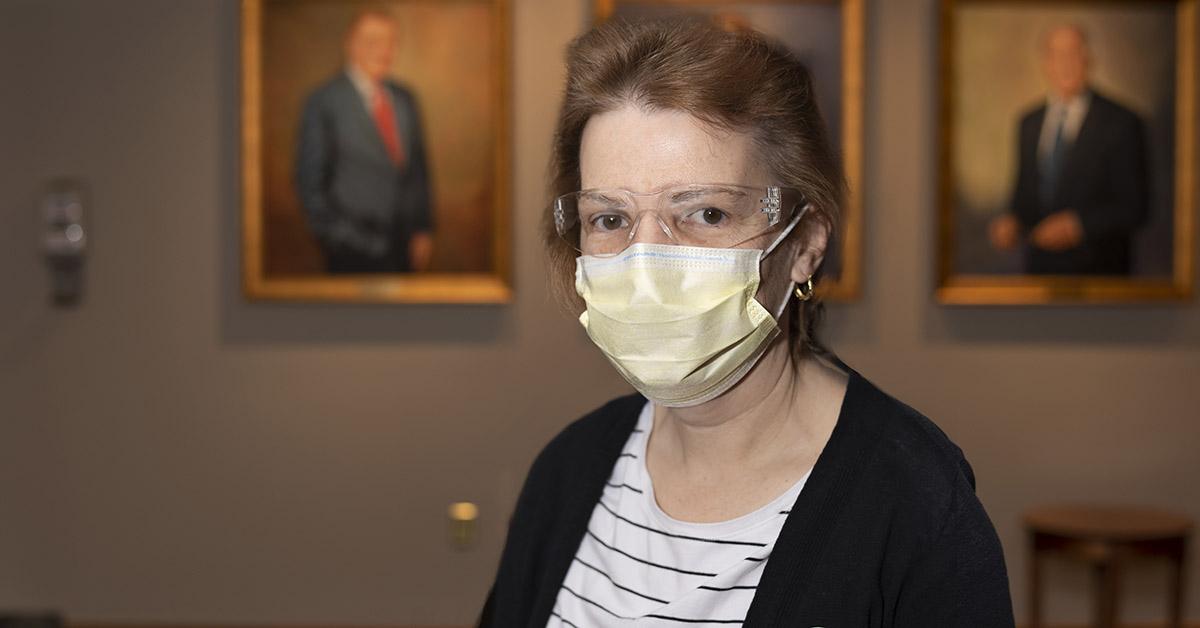
PHILADELPHIA (April 21, 2021)—Researchers at Fox Chase Cancer have published a study investigating the safety and efficacy of a vaccine, given alone and in combination with a PD-1 checkpoint inhibitor, that may prevent colon cancer in certain populations. In a preclinical in vivo model, when administered to mice predisposed to develop colon cancer, the vaccine primed their immune systems to recognize and fight cancer cells and prevent tumors from forming.
“We’re a prevention lab, so we want to target early colon lesions or abnormalities before they become problematic,” said Margie L. Clapper, PhD, professor and co-leader of Fox Chase’s Cancer Prevention and Control Program.
“We found that this vaccine dramatically reduced the number of very early tumors, which wouldn’t be visible during colonoscopy,” the most commonly used screening tool for colon cancer. “We saw a six-fold reduction. That’s the most exciting part of this particular study,” Clapper said.
Colorectal cancer is a leading cause of cancer-related death in the United States and Europe, with a 50% to 100% lifetime risk for individuals with certain genetic mutations such as Lynch syndrome and familial adenomatous polyposis. Consequently, researchers are seeking to develop vaccines that will help to prevent colorectal cancer in these high-risk populations.
The vaccine Clapper and her lab tested was developed by AMAL Therapeutics, which was acquired by Boehringer Ingelheim in 2019. Elodie Belnoue, PhD, senior director of in vivo research at AMAL, was a key collaborator on the study. The vaccine targets achaete-scute family bHLH transcription factor 2 (Ascl2), a protein that influences tumor formation in the colon.
The researchers used mice that were genetically modified to overproduce precancerous growths known as polyps in their colons, but which had not yet developed into colon tumors. The mice were separated into four groups; one group, the control group, was given no treatment.
A second group was administered the vaccine developed by AMAL. The third group received an immunotherapy treatment called Anti-PD-1, which boosts immune system functioning. The final group received both the vaccine and Anti-PD-1.
Clapper and Alyssa Leystra, PhD, a postdoctoral fellow, administered the vaccine and immunotherapy to the mice; Kerry Campbell, PhD, director of the Cell Culture Facility and co-director of the Immune Monitoring Facility at Fox Chase, performed the immunological analyses.
He and his technician found that mice that received the combination vaccine/Anti-PD-1 treatment developed significantly increased T-cell responses toward a portion of the Ascl2 protein and that vaccinated mice successfully developed antibodies against Ascl2. The combination therapy also resulted in increased numbers of T cells infiltrating the tumors, while largely sparing healthy tissue. This suggested that the combination treatment had successfully stimulated the immune system in mice to specifically attack and suppress cancerous growths in the colon.
“There are a number of ways these data can be used to inform future colon cancer prevention studies,” said Clapper. “The results are very promising and provide new opportunities for intervening early in the development of such a common cancer.”
The paper, “Novel Protein-Based Vaccine Against Self-Antigen Reduces the Formation of Sporadic Colon Adenomas in Mice,” was published in Cancers.